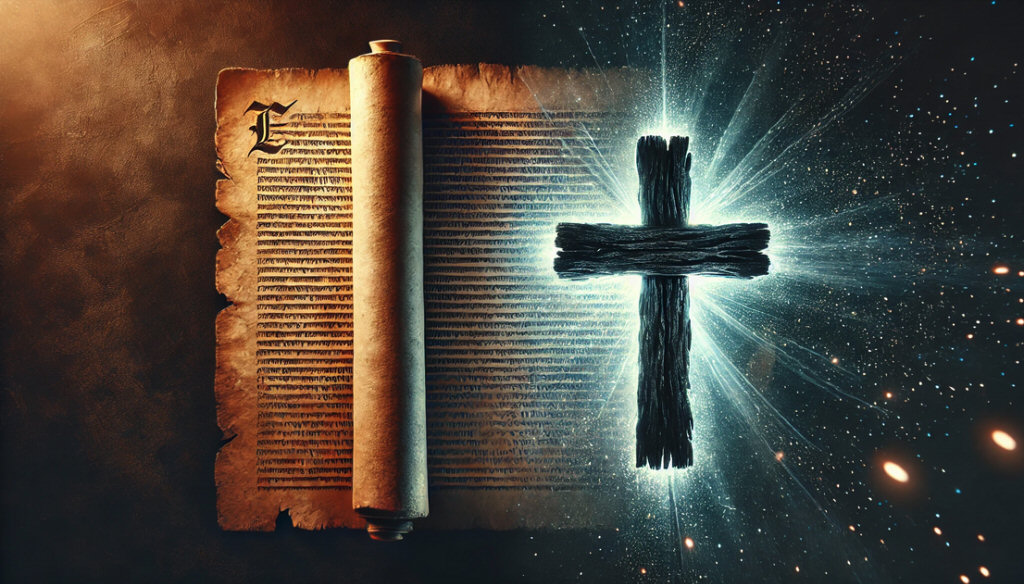In Exodus, we read about the glory of God seen on the face of Moses. The first time this took place, Moses was carrying the tablets of the testimony back down the mountain. It was God’s covenant with His people:
When Moses came down from Mount Sinai, with the two tablets of the testimony in his hand as he came down from the mountain, Moses did not know that the skin of his face shone because he had been talking with God. Aaron and all the people of Israel saw Moses, and behold, the skin of his face shone, and they were afraid to come near him. But Moses called to them, and Aaron and all the leaders of the congregation returned to him, and Moses talked with them. . . . And when Moses had finished speaking with them, he put a veil over his face. (Exodus 34:29-33 ESV).
Moses didn’t cover his face because the people couldn’t look upon it. He covered his face so they would not see the glory fade away. As inspiring as it must have been to see the glory of God on the face of Moses, it would have been equally disheartening to see that glory fade. Nonetheless, when greater glory comes, the glory of the old will disappear. This glory came with the first covenant. But that covenant would be replaced:
“Behold, the days are coming, declares the Lord, when I will make a new covenant with the house of Israel and the house of Judah, not like the covenant that I made with their fathers on the day when I took them by the hand to bring them out of the land of Egypt, my covenant that they broke, though I was their husband, declares the Lord. (Jeremiah 31:31-32 ESV)
After quoting this passage, the writer of Hebrews elaborates on the transitional aspect of its advent. “In the saying ‘new,’ He has made the first obsolete, and what is becoming obsolete and growing
old is near disappearing.” (Hebrews 8:13 LSV). When the new covenant is in effect, the old is no longer in use. It has ended. Now when the author of Hebrews wrote this, he confirmed that the old had not yet vanished but was “near disappearing”. In a letter to Corinth, Paul compares the glory of the old covenant to that of the new:
Now if the ministry of death, carved in letters on stone, came with such glory that the Israelites could not gaze at Moses’ face because of its glory, which was being brought to an end, will not the ministry of the Spirit have even more glory? For if there was glory in the ministry of condemnation, the ministry of righteousness must far exceed it in glory. Indeed, in this case, what once had glory has come to have no glory at all, because of the glory that surpasses it. For if what was being brought to an end came with glory, much more will what is permanent have glory. (2 Corinthians 3:7-11 ESV)
The Jews were not willing to believe that the end of their age was at hand. Paul refers to this as he continues, “For to this day, when they read the old covenant, that same veil remains unlifted, because only through Christ is it taken away” (2 Corinthians 3:14 ESV). Just as the glory of God faded from the face of Moses, the glory of the old covenant was fading in the presence of Jesus and His eternal sacrifice.
There was glory in the covenant God made with ethnic Israel. But the glory of the new covenant in Jesus Christ, offered to all who will come to Him, diminished the light of the old. Jesus is a light to the whole world and the glory of His covenant will never fade away. And we, “with unveiled faces, looking as in a mirror at the glory of the Lord, are being transformed into the same image from glory to glory” (2 Corinthians 3:18 NASB).
